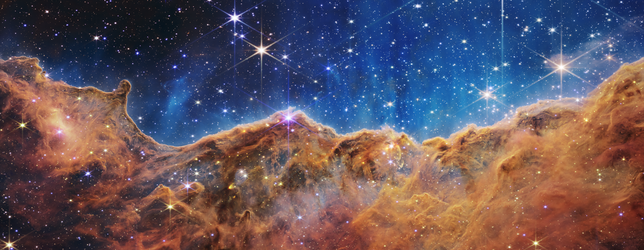Accept all cookies Accept only essential cookies See our Cookie Notice

About ESA
The European Space Agency (ESA) is Europe’s gateway to space. Its mission is to shape the development of Europe’s space capability and ensure that investment in space continues to deliver benefits to the citizens of Europe and the world.
Highlights
ESA - United space in Europe
This is ESA ESA facts Member States & Cooperating States Funding Director General Top management For Member State Delegations European vision European Space Policy ESA & EU Space Councils Responsibility & Sustainability Annual Report Calendar of meetings Corporate newsEstablishments & sites
ESA Headquarters ESA ESTEC ESA ESOC ESA ESRIN ESA EAC ESA ESAC Europe's Spaceport ESA ESEC ESA ECSAT Brussels Office Washington OfficeWorking with ESA
Business with ESA ESA Commercialisation Gateway Law at ESA Careers Cyber resilience at ESA IT at ESA Newsroom Partnerships Merchandising Licence Education Open Space Innovation Platform Integrity and Reporting Administrative Tribunal Health and SafetyMore about ESA
History ESA Historical Archives Exhibitions Publications Art & Culture ESA Merchandise Kids Diversity ESA Brand Centre ESA ChampionsSpace in Member States
Find out more about space activities in our 23 Member States, and understand how ESA works together with their national agencies, institutions and organisations.
Science & Exploration
Exploring our Solar System and unlocking the secrets of the Universe
Go to topicAstronauts
Missions
Juice Euclid Webb Solar Orbiter BepiColombo Gaia ExoMars Cheops Exoplanet missions More missionsActivities
International Space Station Orion service module Gateway Concordia Caves & Pangaea BenefitsLatest
Space Safety
Protecting life and infrastructure on Earth and in orbit
Go to topicAsteroids
Asteroids and Planetary Defence Asteroid danger explained Flyeye telescope: asteroid detection Hera mission: asteroid deflection Near-Earth Object Coordination CentreSpace junk
About space debris Space debris by the numbers Space Environment Report In space refuelling, refurbishing and removingSafety from space
Clean Space ecodesign Zero Debris Technologies Space for Earth Supporting Sustainable DevelopmentLatest
Applications
Using space to benefit citizens and meet future challenges on Earth
Go to topicObserving the Earth
Observing the Earth Future EO Copernicus Meteorology Space for our climate Satellite missionsCommercialisation
ESA Commercialisation Gateway Open Space Innovation Platform Business Incubation ESA Space SolutionsEnabling & Support
Making space accessible and developing the technologies for the future
Go to topicBuilding missions
Space Engineering and Technology Test centre Laboratories Concurrent Design Facility Preparing for the future Shaping the Future Discovery and Preparation Advanced Concepts TeamSpace transportation
Space Transportation Ariane Vega Space Rider Future space transportation Boost! Europe's Spaceport Launches from Europe's Spaceport from 2012
Tarantula Nebula – NIRSpec IFU
Thank you for liking
You have already liked this page, you can only like it once!
Webb’s Near-Infrared Spectrograph (NIRSpec) reveals what is really going on in an intriguing region of the Tarantula Nebula. Astronomers focused the powerful instrument on what looked like a small bubble feature in the image from Webb’s Near-Infrared Camera (NIRCam). However, the spectra reveal a very different picture from a young star blowing a bubble in its surrounding gas.
The signature of atomic hydrogen, shown in blue, shows up in the star itself but not immediately surrounding it. Instead, it appears outside the “bubble,” which spectra show is actually “filled” with molecular hydrogen (green) and complex hydrocarbons (red). This indicates that the bubble is actually the top of a dense pillar of dust and gas that is being blasted by radiation from the cluster of massive young stars to its lower right (see the full NIRCam image). It does not appear as pillar-like as some other structures in the nebula because there is not much colour contrast with the area surrounding it.
The harsh stellar wind from the massive young stars in the nebula is breaking apart molecules outside the pillar, but inside they are preserved, forming a cushy cocoon for the star. This star is still too young to be clearing out its surroundings by blowing bubbles – NIRSpec has captured it just beginning to emerge from the protective cloud from which it was formed. Without Webb’s resolution at infrared wavelengths, the discovery of this star birth in action would not have been possible.
NIRSpec was built for the European Space Agency (ESA) by a consortium of European companies led by Airbus Defence and Space (ADS) with NASA’s Goddard Space Flight Center providing its detector and micro-shutter subsystems.
-
CREDIT
NASA, ESA, CSA, and STScI -
LICENCE
ESA Standard Licence

Tarantula Nebula – NIRCam

Tarantula Nebula – MIRI

Zoom into the Tarantula Nebula

Cosmic Cliffs in Carina – NIRCam















 Germany
Germany
 Austria
Austria
 Belgium
Belgium
 Denmark
Denmark
 Spain
Spain
 Estonia
Estonia
 Finland
Finland
 France
France
 Greece
Greece
 Hungary
Hungary
 Ireland
Ireland
 Italy
Italy
 Luxembourg
Luxembourg
 Norway
Norway
 The Netherlands
The Netherlands
 Poland
Poland
 Portugal
Portugal
 Czechia
Czechia
 Romania
Romania
 United Kingdom
United Kingdom
 Slovenia
Slovenia
 Sweden
Sweden
 Switzerland
Switzerland
























